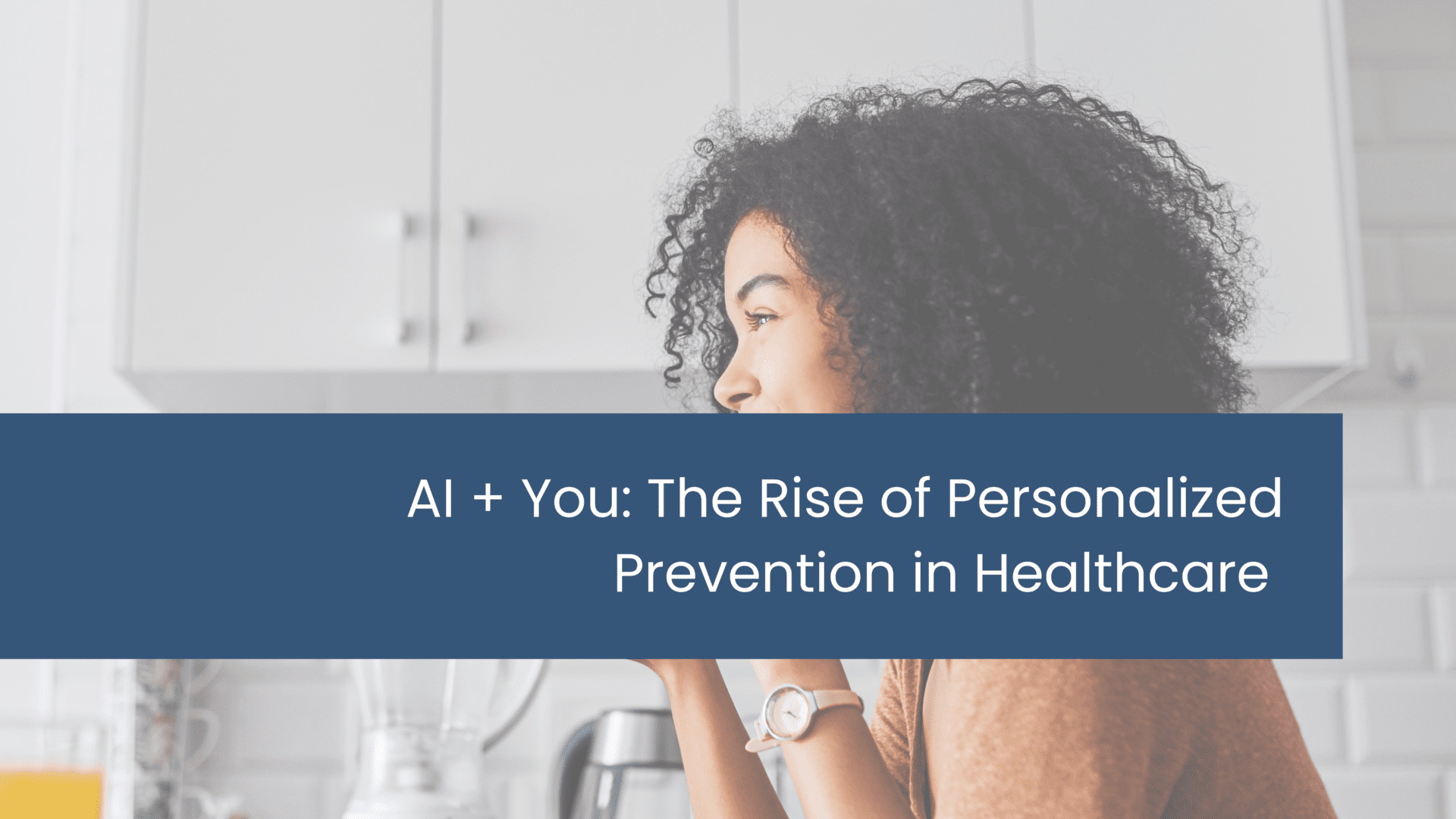AI + You: The Rise of Personalized Prevention in Healthcare

Today’s healthcare still follows the outdated model: wait for symptoms, then move to treating the disease. But what if we could stop many diseases before they even start, and stay healthier for longer? A 2016 Health Affairs study found that just adding 2.2 years to people’s health span (healthy years of life) could save $7.1 trillion over 50 years! Another 2021 Nature Aging study estimated that delaying aging by just one year could be worth $38 trillion. This shows how valuable saving lives can be.
Here, artificial intelligence (AI) can make a big difference. What many don’t know is that AI has the power to help people prevent an illness and make smarter, more personalized decisions about health, simply by shifting the focus earlier in the health journey. This can be a game-changer, specifically for conditions that are affecting hundreds of millions of people worldwide.
From Disease Treatment to Wellness
The current system is excellent for emergency care, but could use some improvement at managing long-term diseases, such as heart disease or Alzheimer’s. As is widely known, such diseases often result from a mix of genetics, lifestyle, and aging. By the time symptoms appear, it is often too late to reverse the damage.
If we speak about Alzheimer’s, billions have been spent on drug research, but treatments have only had limited success. Studies, like FINGER and POINTER, show that a mix of healthy habits, including diet, exercise, mental training, and managing blood pressure, can slow down, or even prevent,t cognitive decline for the people at risk. The key? Act early.
As said by the CDC, 80% of heart disease, strokes, and type 2 diabetes could be prevented simply through positive life changes. The problem lies in the lack of insights. Most people do not have access to personalized guidelines to make those changes, and that’s where AI steps forward.
After a decade of researching with thousands of participants, scientists have discovered 3 powerful insights worth sharing:
- Genetics affect how you respond to lifestyle changes.
- Your gut microbiome can predict how easily you lose weight.
- You can change your biological aging path with the right steps.
This makes it clear, personalization matters much more than you know. And at such a large scale, only AI can deliver.
Scientific Wellness – The Approach to Go For
Everyone’s talking about scientific wellness, and here’s why. Scientific wellness is a new approach that uses data to connect tailored health plans for each person. By tracking your biology over time, such as your genes, gut health, and blood markers, we might be able to catch problems early and hold onto wellbeing longer. AI assists by analyzing this complex data and figures out what would work best for just you, not everyone.
AI = Personalization
While trying to help healthy people, it’s crucial to ensure safety. That is why natural products and targeted supplements are often safer than drugs. However, their success depends on finding the right mix for each person.
AI can easily identify:
- Whether you have a gene that blocks vitamin D absorption, in that case, standard supplements won’t work for you.
- If your gut bacteria can efficiently convert helpful nutrients into harmful byproducts, standard advice might backfire.
AI can process such analysis within seconds and give you simple, actionable steps, like which supplements to take, what foods to eat, or what habits to change. All based on your specific biology.
A healthy future – all thanks to AI!
Soon enough, AI will be well-trained on the best medical knowledge and real-time data from wearables and home devices. This means you can get personalized health advice at any time, problems can be spotted before you even feel sick, and care can shift from the doctor’s office to your home.
For many individuals, this means better decisions and more control. And for healthcare systems, it means lower costs and fewer chronic illnesses. Times have changed, and now the focus should be on prevention and wellness, rather than just treatment. Let’s use AI best, which can transform healthcare and help us live longer, healthier lives.
Disclaimer: The information provided on this website should not be considered legal, financial, or medical advice. You should always consult the appropriate professional.

